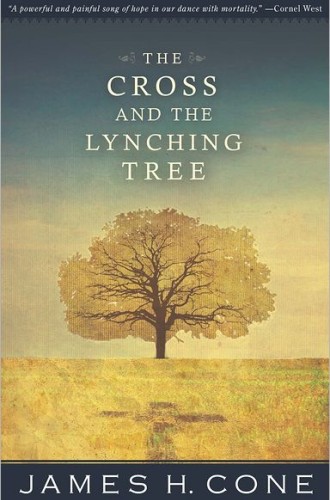The Cross and the Lynching Tree, by James H. Cone
My great-grandfather was lynched. It was not a big affair in the town square; it happened on a dusty southern road. But its imprint and the communal denial in the small southern town that is our homeland have had lasting reverberations for generations of my family.
I begin with this disclosure because to adequately appreciate James Cone's reason for writing this work, it is necessary to recognize that few African Americans are more than a few degrees removed from a similar narrative and the experience that it creates. It is the ubiquity of this experience that makes it a theological category. The theological methodology used by black theology is one which gives primacy to experience: experience of not only the divine but also of the vicissitudes of human pain and suffering caused by the workings of evil.
Whereas in other works Cone broadly takes on the corruption of Christian practice and proclamation and Christians' complicity with racism, in The Cross and the Lynching Tree he focuses on a type of complicity that involves the church not just in corruption but in evil. The complicity on which he focuses is the Christianization of lynching: the common practice of murdering (killing seems too sanitized a term) African Americans as a means of social and political control after the demise of Reconstruction. Frequently these deaths were torturous and were made public spectacle.





